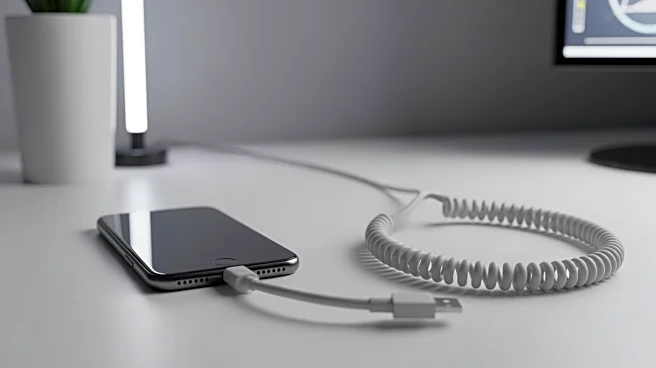What's Happening?
CNET has published an article addressing common concerns about smartphone battery life and charging habits. The article clarifies that modern smartphones are equipped with smart charging systems that prevent
overcharging, a problem that was prevalent in older devices. While leaving a phone plugged in overnight does not ruin the battery, it can contribute to battery degradation over time due to stress and heat. The article emphasizes that heat is the primary factor affecting battery longevity, especially when phones are used for demanding tasks while charging.
Why It's Important?
Understanding the impact of charging habits on battery life is crucial for consumers who want to maximize the lifespan of their devices. As smartphones are integral to daily life, ensuring their longevity can save users from frequent replacements and reduce electronic waste. The insights provided by CNET can help users make informed decisions about how to charge their devices, potentially leading to cost savings and environmental benefits. Manufacturers like Apple and Samsung have implemented features to mitigate battery stress, highlighting the industry's focus on improving battery technology.
What's Next?
Consumers are encouraged to adopt charging practices that minimize heat exposure and utilize built-in optimization tools like Apple's Optimized Battery Charging and Samsung's Battery Protect. These features adjust charging speed based on user habits, reducing time spent at high voltage. Users should also consider using quality chargers and cables to ensure stable current delivery. As battery technology continues to evolve, future smartphones may offer even more advanced solutions to extend battery life and improve user experience.
Beyond the Headlines
The article touches on the broader implications of battery management, including the environmental impact of electronic waste and the role of consumer habits in sustainability. By adopting smarter charging practices, users can contribute to reducing the demand for new devices and the associated environmental footprint. The focus on battery health also reflects a shift in consumer priorities towards long-term device performance and sustainability.










